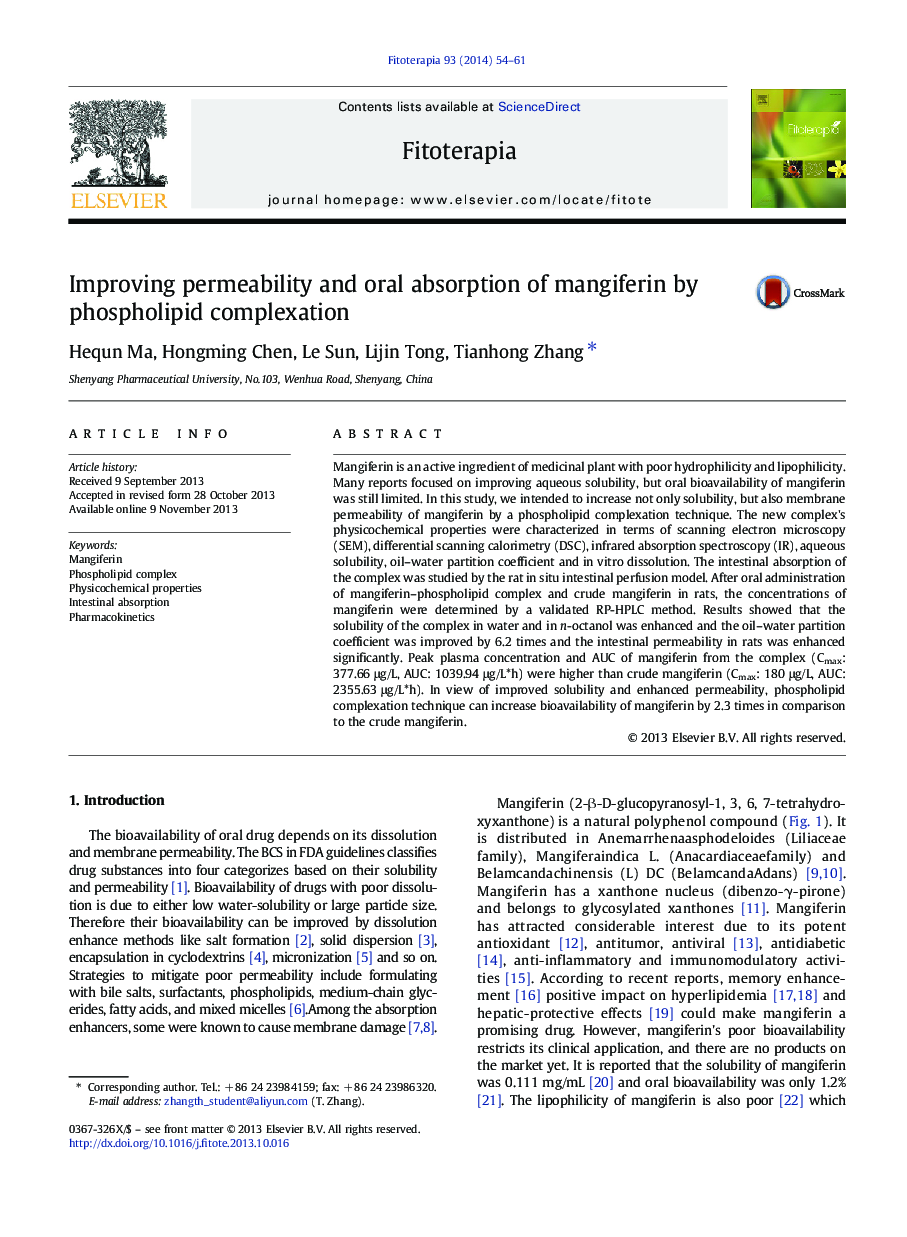| Article ID | Journal | Published Year | Pages | File Type |
|---|---|---|---|---|
| 5831081 | Fitoterapia | 2014 | 8 Pages |
Mangiferin is an active ingredient of medicinal plant with poor hydrophilicity and lipophilicity. Many reports focused on improving aqueous solubility, but oral bioavailability of mangiferin was still limited. In this study, we intended to increase not only solubility, but also membrane permeability of mangiferin by a phospholipid complexation technique. The new complex's physicochemical properties were characterized in terms of scanning electron microscopy (SEM), differential scanning calorimetry (DSC), infrared absorption spectroscopy (IR), aqueous solubility, oil–water partition coefficient and in vitro dissolution. The intestinal absorption of the complex was studied by the rat in situ intestinal perfusion model. After oral administration of mangiferin–phospholipid complex and crude mangiferin in rats, the concentrations of mangiferin were determined by a validated RP-HPLC method. Results showed that the solubility of the complex in water and in n-octanol was enhanced and the oil–water partition coefficient was improved by 6.2 times and the intestinal permeability in rats was enhanced significantly. Peak plasma concentration and AUC of mangiferin from the complex (Cmax: 377.66 μg/L, AUC: 1039.94 μg/L*h) were higher than crude mangiferin (Cmax: 180 μg/L, AUC: 2355.63 μg/L*h). In view of improved solubility and enhanced permeability, phospholipid complexation technique can increase bioavailability of mangiferin by 2.3 times in comparison to the crude mangiferin.
Graphical abstractFigure optionsDownload full-size imageDownload high-quality image (178 K)Download as PowerPoint slide
